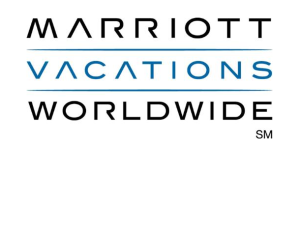…More About Timeshare Ownership and the Challenges of Natural Disasters
Wednesday, August 1, 2007
The legalities and your individual rights when you own a timeshare that is rendered unusable because of a catastrophic event will vary from state to state and from timeshare company to timeshare company. And for timeshare vacation property owned outside the United States, your rights, and your ability to enforce them, are often a case by case situation.
Even in the US, if your timeshare is damaged and unusable, you may simply be “out of luck.” You will, however, still be assessed your annual fees, taxes, and other recurring costs, just as if you had enjoyed seven wonderful days of sun and fun in your timeshare unit. If you are making payments on your timeshare, those payments will, of course, also be due. And if your timeshare resort finds it necessary to assess additional fees in order to repair the damages, you will be expected to pay your share of those fees, as well. Special repair fees may be assessed only on the owners of property at the specific resort damaged, or they may be prorated and distributed to all of the owners within the network of that timeshare company.
Another bit of bad news is that the length of time your timeshare is “out of commission” could be much longer than you might expect. A hurricane may be over in a few hours, but the damage it leaves behind can affect timeshare usage for months.
Following the 2004 hurricanes, which hit in August and September, over 60 timeshare resorts in the state of Florida alone were still unfit for occupancy in November. Others were unusable as much as a year later, and in the case of an unprecedented situation, like when Hurricane Katrina hit New Orleans and the Gulf Coast in 2005, your timeshare resort could be permanently obliterated.
Post-disaster repairs are not always as simple as bringing in a work crew and putting up a new roof and some drywall. When large geographic areas are affected at once, settlement time with overloaded insurance companies slows to a crawl. Building materials become scarce, and the laborers and craftsmen needed to repair the timeshare units wind up putting customers on waiting lists that can stretch months and months into the future.
Your timeshare resort has an insurance deductible on the property that is essentially like the deductible you probably have on your personal home. That deductible represents what is owed out of pocket by the property owner, or in the case of a timeshare, the property owners, plural. For timeshares built in areas that may be subject to hurricanes, expect the deductible to be as much as 7 or even 10 times higher for hurricane damages than it is for other types of devastation, like a fire, for example.
As much as my two consecutive blog postings of natural disaster “gloom and doom” may be enough to convince you that a timeshare is the last thing you need, the truth is, the odds of your vacation ever being seriously affected by a hurricane are pretty slim. If the abnormally severe hurricane seasons of recent years have made you cautious, then just don’t schedule your timeshare vacation for September.
While hurricane season officially lasts from June 1 to November 30 each year, 19 of the 31 most significant hurricanes in the past 100 years occurred in the month of September, with 9 others on the list happening in either late August or early October. Remember that not all of these hurricanes hit Florida. Several of the hurricanes on the historic worst list hit Texas, a quite a few hit the Carolina coast, and at least 3 on the list made landfall in New England.
And here is one last thought about timeshare ownership and natural disasters. The Real Estate Journal of the Wall Street Journal, www.realestatejournal.com, quoted Howard Nussbaum, who at that of the interview was president of ARDA, as saying, “some people might even consider buying timeshare in affected resorts, figuring that ‘they’ve just been refurbished with insurance money'”.
Just one more reason to buy timeshare resales.





